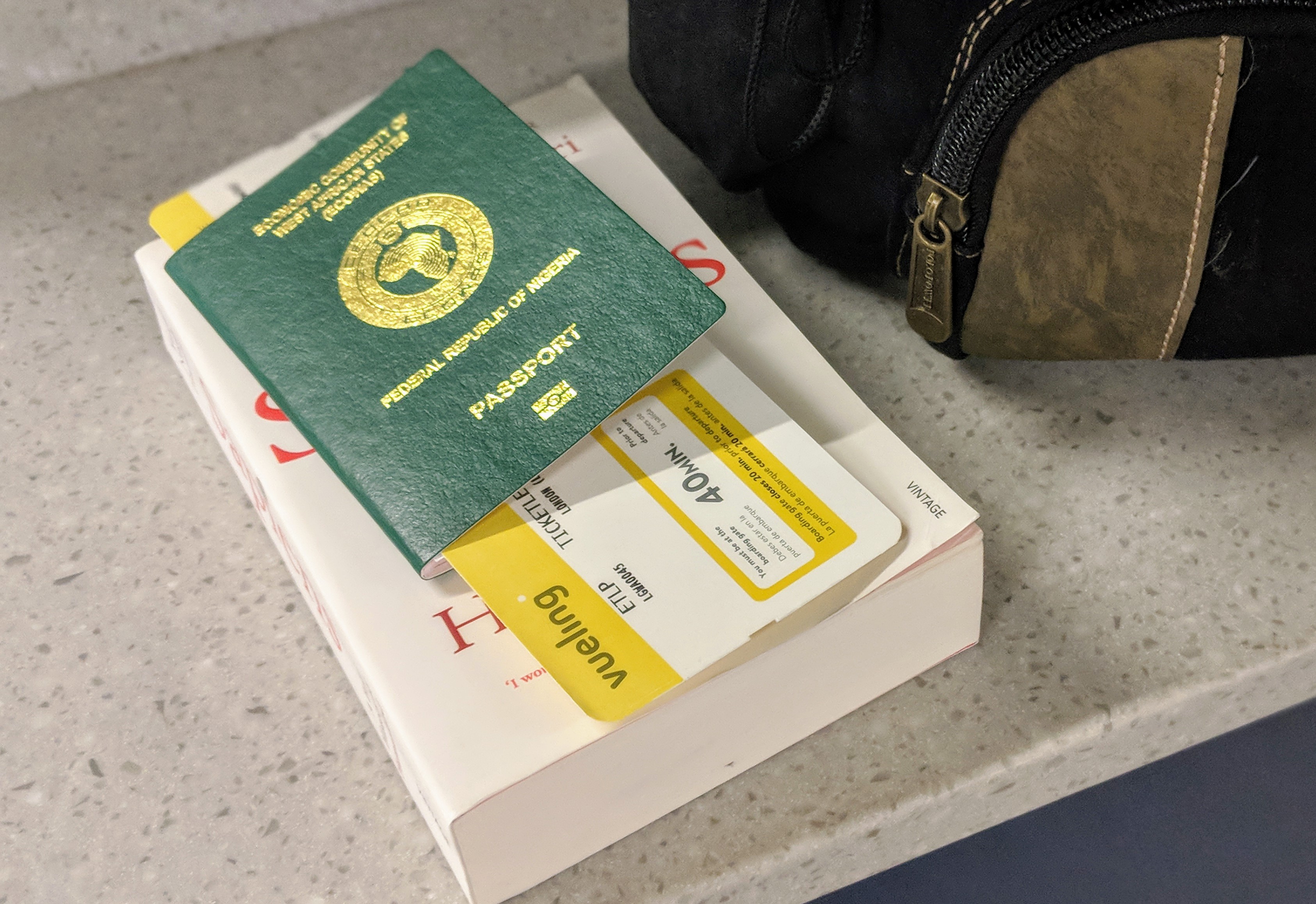On August 23, 2019, the US Federal Bureau of Investigation (FBI) said it apprehended 80 persons for cyber fraud — 77 of which were considered Nigerians.
A week earlier, Obinwanne Okeke, Nigerian entrepreneur and Invictus Group chief executive officer, better known as Invictus Obi, was allegedly linked to a fraud case in the US.
Two weeks earlier, the New York Times reported how Nigerian cyber fraudsters used military romance scam to dupe many unsuspecting US women of tens of thousands of dollars.
Following these damning reports, the Nigerian diaspora has been attempting to tell the world that not all Nigerians are fraudsters.
Advertisement
“Not all Americans are mass shooters. Not all Brits are stabbers. Not all Nigerians are Fraudsters,” many Nigerians in the diaspora are writing on social media.
THE BIG PICTURE: 45% of Nigerian adults want to leave

According to the United Nations, there were about 1.24 million Nigerians in the diaspora as at 2017, a figure estimated to have increased drastically in the last two years, based on the wave of migration in the country. Though the official records do not include those born of Nigerian parents in the diaspora and therefore, hold citizenship of their birth countries.
“Unofficial reports state that there are about 15 million Nigerians in the diaspora,” a PwC report suggests.
Advertisement
A 2018 survey by the Pew Research Centre, a leading nonpartisan fact tank based in Washington D.C., shows that almost half of Nigerian adults have indicated their willingness to leave the country in the next five years.
“In Nigeria, 28% of potential migrants say they plan to move to the U.S., 19% mention a European country and 19% say a Middle Eastern country,” the survey revealed.
The survey goes on to show that 14 percent of Nigerians who plan to migrate in the next five years have got a passport, saved some money for travel, and applied for a visa.
Quick Fact: In 2019, the federal government of Nigeria declared July 25 as national diaspora day.
Advertisement
PwC: Official remittances to Nigeria may hit $25.5 billion

In 2018, remittances (money transfers) from Nigerians abroad into the west African country was about US$23.12 billion.
In context, this is over 700 percent of foreign aid received by Nigeria — despite insurgency.
This is also about 1000 percent of the foreign direct investment Nigeria got in 2018 — representing over 83 percent of the nation’s budget for the same year.
According to a PwC report measuring “The Economic Power of Nigeria’s Diaspora”, official remittances to Nigeria is expected to hit $25.5 billion in 2019 — this amounts to 87 percent of the 2019 budget.
Advertisement
“PwC estimates that migrant remittances to Nigeria could grow to US$25.5bn, US$29.8bn and US$34.8bn in 2019, 2021 and 2023 respectively. Over a 15-year period, PwC expects total remittance flows to Nigeria to grow by almost double in size from US$18.37 billion in 2009 to US$34.89 billion in 2023,” the report read.
According to the World Bank, top official recorded remittances are much lower than the actual remittances that take place through official and unofficial channels. Remittances through informal channels could add at least 50 percent to the globally recorded, hence the recorded $23.12 billion was via legitimate means.
Advertisement
The projected $25.5 billion by PwC also accounts for just remittances via legitimate official channels.
Top destinations for Nigerians are US, UK, Cameroon, Niger, Ghana, Italy, and the Benin Republic.
Advertisement
PwC recommends that the government should create platforms that increase the accessibility of crucial information for Nigerians in the diaspora, while working around ways to reduce the cost of remittance technology.
Advertisement
Add a comment






